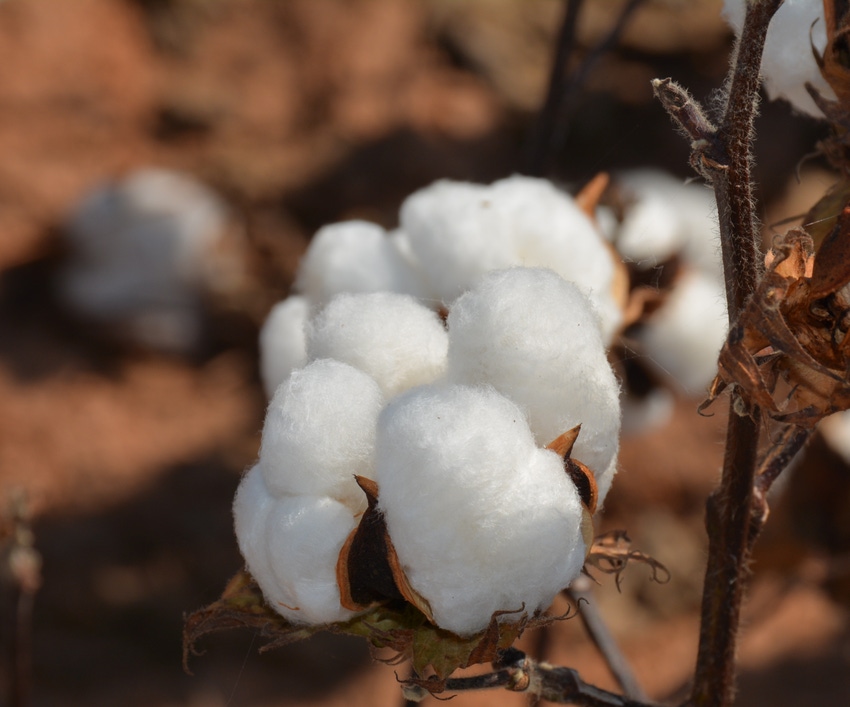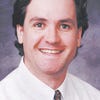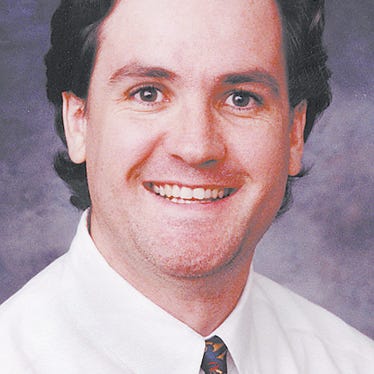
The consultant’s meeting normally kicks off the annual Beltwide Cotton Conferences (http://www.cotton.org/beltwide/) and “that’s what we’re expecting again at this year’s meeting in San Antonio,” says Hank Jones, Louisiana consultant.
Indeed, the consultant meeting will again be first out of the gate on Jan. 3 starting at 11 a.m.
Jones, who heads the NCC’s consultant committee, would “like to see as many cotton consultants at the meeting as possible. It’s well worth their time because the agenda is great. But even after the conference there are plenty of other talks — from academia, from industry, from government — that consultants will benefit from. And there’s also time to visit one—on—one with many of the expert speakers. I can’t play up those opportunities enough.”
There’s obviously no way to hit every topic facing every cotton farmer in the country, says Jones. “We do try, though, through the (NCC—backed) committee made up of consultants from the Cotton Belt. We visit via conference with Don Parker (NCC manager of integrated pest management) a couple of time a year and talk about some of the issues our producers are facing with their cotton crops and things like new technologies we’re expecting in the future. What are the issues regionally? Issues for the South and Southeast? Issues for the West or Texas?
“When we’re deciding on the speaker line—up for the Beltwide Consultant’s Conference, we certainly keep those conversations in mind. Most of time, we can fill the slots with university specialists. We want to make sure that all the talks you’ll hear, regardless of whether you’re from the Carolinas or Arizona, will be of interest.”
Among topics on the 2018 agenda:
Bollworms. “There are bollworm resistance problems we’re seeing in relation to Bollgard cotton. (Arkansas entomologist) Gus Lorenz will speak on bollworms, resistance and the new Bollgard III technology.
New traits. “We’ll have Scott Stewart from the University of Tennessee speaking on new traits, including targeting lygus, that’ll be inserted into cotton in the future.”
Dicamba/2,4—D. “We’ll have some university folks in the Southeast to speak on herbicide technologies as they pertain to 2,4—D and dicamba. How can we help farmers mitigate against drift and make sure we get the best out of our investments?”
Disease. “Plant pathologists will speak on foliar diseases and seed treatment fungicides used at planting.”
Government and regulatory issues. “Parker will give us a very good update on EPA actions, product registrations and the like.”
Bacterial blight. “Bacterial blight was virtually eliminated through breeding. I don’t ever remember as a young man consulting or in college ever going out and finding bacterial blight in cotton.
“These days, some of our popular varieties have had bacterial blight. That’s something, with the help of university pathologists, we can get a better understanding on why we’re seeing it, the best ways to manage it.
“I understand they’re watching for blight in Georgia cotton. They’ve battled hard against nematodes there and some of the newer varieties with nematode tolerance seem most prone to the disease.”
Cotton root rot.
Deciphering fungicide seed treatments: target, options, efficacy and economics.
Note: Scroll down for tentative agenda.
Louisiana
What happened in Louisiana during the latest growing season?
“Making a cotton crop isn’t usually easy,” says Jones. “We’re actually still picking some cotton in Louisiana, they’re battling to get finished. That’s rather rare for us because we’re usually done in November. Unfortunately, the growing season was less than ideal. We started off pretty wet and then found a pocket of time to plant cotton in April and May.
“We had to battle a lot of bollworms, certainly more than in previous years. At the end of the season, we had a lot of problems with weather — boll—rot and hard—lock. Everything that happened in August seemed to deteriorate the quality of our cotton.
“It’ll be nice to attend Beltwide and garner information and optimism for the future. We need that in the Louisiana cotton sector because this year we took it on the chin in some regards, especially later in the season.”
There is a lot of cotton still waiting to be ginned, says Jones. “There are plenty of guys who plan to plant cotton next year, which is great. I think a lot of what happens with cotton acreage in 2018 will be dependent on the price of corn and soybeans. If corn prices rally, you’ll probably see corn cut into cotton acres. By and large, though, I expect us to have a good amount of cotton in the mix.”
Tentative agenda
Wednesday, January 3, 2018, Consultants Conference
Salon F (Marriott Rivercenter Hotel, San Antonio, Tex.)
12:15 p.m. Opening Remarks, Hank Jones, RHJ Ag Services, LLC., Winnsboro, La.
12:50 p.m. Moving to Bollgard III — Gus Lorenz, University of Arkansas.
1:20 p.m. Dicamba and 2—4 D Technology: The Good, The Bad, and The Ugly — Larry Steckel, University of Tennessee.
1:42 p.m. Dicamba and 2—4 D: Year 1 — A. Stanley Culpepper, University of Georgia.
2:05 p.m. Growing Cotton Economically — Darrin M. Dodds, Mississippi State University.
2:35 p.m. Expectations for the Bt Lygus and Thrips Trait Based on Current Experiences — Scott D. Stewart, University of Tennessee.
3:20 p.m. Contamination Elimination — Bill Norman, National Cotton Council, Cordova, Tenn.
3:35 p.m. Regulatory Update — Don Parker, National Cotton Council, Cordova, Tenn.
3:55 p.m. An Old Foe: The Re—Emergence of Bacterial Blight — Tom W. Allen, Mississippi State University, Delta Research and Extension Center, Stoneville, Miss.
4:20 p.m. Plant Parasitic Nematodes Effects on Our Current Cotton Cultivars — Kathy Lawrence, Auburn University.
4:40 p.m. Management of Cotton Root Rot — Thomas Isakeit, Texas A&M University.
5:00 p.m. Deciphering Fungicide Seed Treatments: Targets, Options, Efficacy, and Economics — Paul (Trey) Price, Louisiana State University.
About the Author(s)
You May Also Like






